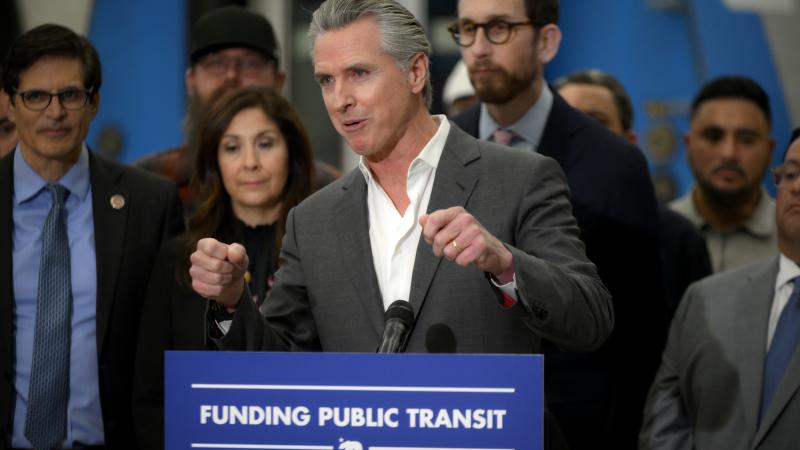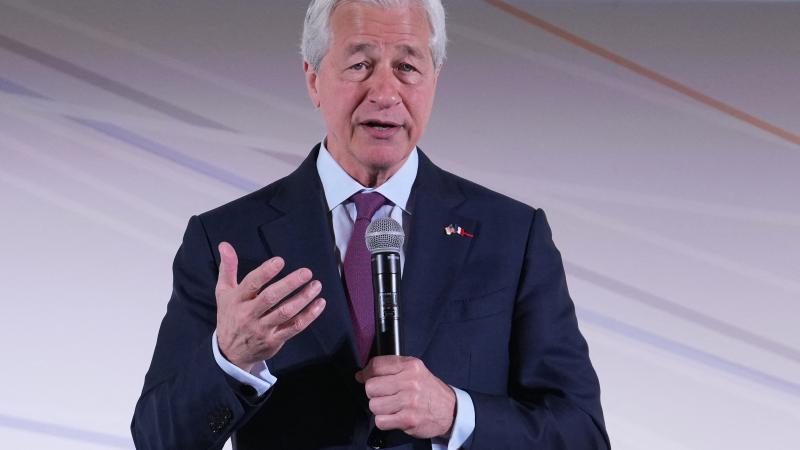Rising boxer's career derailed by life prison sentence, but Trump clemency gave him fresh start
"They sent me to a maximum security prison after I had spent almost four years in the county jail: no sunlight, no going up the stairs [and] no real visits," Tanner said.
Former professional boxer Charles Duke Tanner never thought he'd get the chance to see his son graduate from college after a life prison sentence for a drug conviction derailed his sports career. But a single swipe of Donald Trump's presidential pen changed all that.
Trump unexpectedly granted clemency to the once 19-0 boxer in October 2020, and Tanner has since made the most of his freedom. He has started a charity, built an entrepreneurial business and even wrote a biography.
And he made it to his son's college graduation earlier this spring.
"Not only was I able to take him (his son) to college because of what President Trump did for me, but I was able to see him walk across the stage May 4th of this year.....to graduate college, as well as to take him back to school to go get his masters that he's doing right now," Tanner told the John Solomon Reports podcast.
Tanner is a former professional boxer from Gary, Ind. He was initially sentenced to life in prison for drug conspiracy until he was pardoned by the 45th president.
The state of Indiana later changed his sentence to 30 years before Tanner's pardon.
"I was 24 years old and I got arrested," Tanner explained on the podcast. "I had done 16 years before I got released. I came home at 41. I did almost 17 years. So when we filed the first clemency, I was, like 34 or something like that."
Tanner started boxing at a young age and even won the bronze medal in the Junior Olympics and the World Games.
When times got tough, Tanner explained that he "took a shortcut" and started to work with someone who was involved in drug dealing and got caught.
"I wanted to take my responsibility, but the government wanted to do otherwise," he said. "My boss told on me, so who was it for me to even tell him even if I wanted to? But I'm a man of faith and character, and I wanted to set my responsibility. And they said, 'No, either you're gonna cooperate or you're gonna go to trial.' I went to trial.......they gave me a double life sentence for a non violent drug crime."
He said that there were no real drugs brought in and not a huge sum of money was taken and he got a double life sentence.
"They sent me to a maximum security prison after I had spent almost four years in the county jail: no sunlight, no going up the stairs [and] no real visits. I had a two year old son at the time and I watched him grow up basically on FaceTime and because that's how my visits were," Tanner said. "I didn't even visit through the glass."
During his time in prison, Tanner spent a lot of time completing as many reentry programs as he possibly could. He said he applied for clemency under the Obama administration but was denied.
"I took responsibility for my actions and was given the amazing opportunity to complete a faith-based reentry program called Life Connections," he wrote in a piece for America First Policy Institute. "It gave me the hope and encouragement for life that I needed. However, my hope was crushed but not broken when in 2016, I was denied clemency without explanation from the Obama administration even though I fit all the criteria."
When asked about what advice he would give to his younger self, he said it would be not to take shortcuts and to turn to God during times of struggle.
"Don't take shortcuts," he said. "Make it first and then come back and get everybody else. I will never tell someone to turn their back on their people."
He said that every action has a reaction and discussed the importance of faith and coming back after pushbacks.
"Every action has a reaction," he said. "You take your licking and you get back up and you come back and you be the best man or woman that life could ever have. That's what makes a community, a city and a world better."















